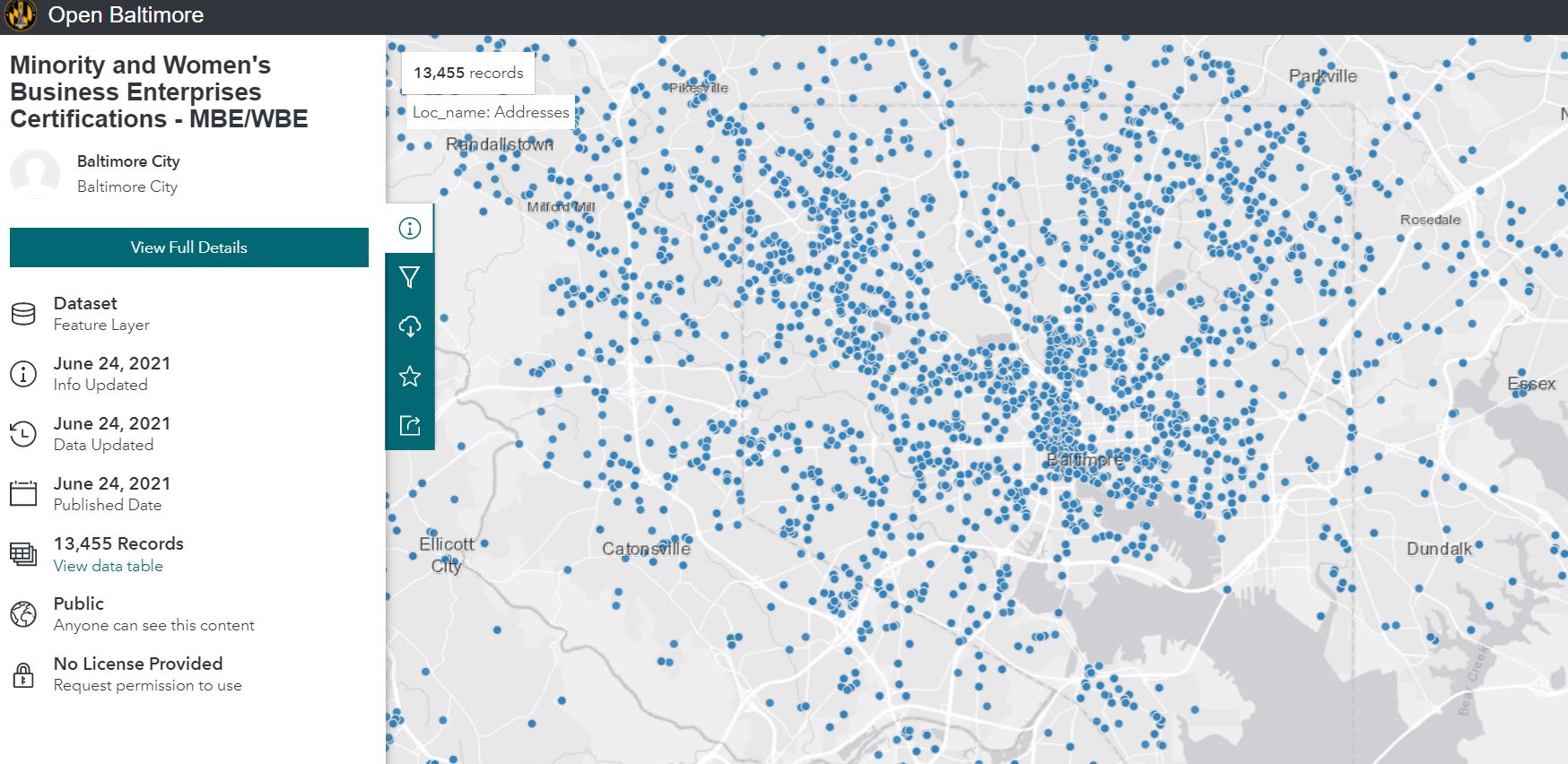A new version of the City of Baltimore’s directory of local minority and women-owned businesses was published this month on the Open Baltimore portal, which makes city government data accessible to the public.
Right now, it’s in a bare-bones form, where users can see locations of businesses on a map and look at the data in table form to get more info about the enterprises. By mid-July, when the annual Baltimore Data Week arrives, Baltimore City Chief Data Officer Justin Elszasz expects to add features like searchability and job category filtering to the dataset that will improve user functionality.
The data was previously published on Open Baltimore, but got lost in the shuffle during the platform migration to Esri late last year. Additionally, it wasn’t available on a GIS map back then, and it was still pretty cumbersome to sift through.
“In the past [Open Baltimore] was seen as only where we put raw data and let others do things with it,” said Elszasz, who was appointed to the chief data officer role in March. “This is a clear opportunity where we’re able to offer up a little more so that non-data users can actually find use and interest in the data that we do put out there.”
This change in philosophy, where Open Baltimore will add insights to the data hosted on the platform and work to make the data more accessible to citizens who aren’t as familar with data, is the working mandate of Elszasz as chief data officer.
This is leading to the next project, called Open Budget. Different from Open Checkbook, this tool is bringing budget allocation data to Open Baltimore, and turning it into an easily digestible format for residents. Like the woman and minority-owned business datasets, the Baltimore City budget data is publicly available already. The new tool is expected to launch in the coming weeks.
Like many technologists, Elszasz takes an approach of releasing minimum viable products. He aims to “get something out into the world and seek feedback on it.”
“Over the next couple of weeks, I’m sure whatever we launch is not going to be perfect, and that’s fine to me,” he said. “I’m more interested in getting stuff out into the world and seeing how people use it.”







